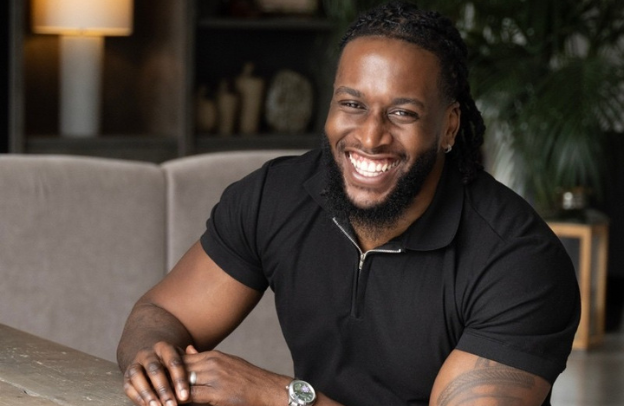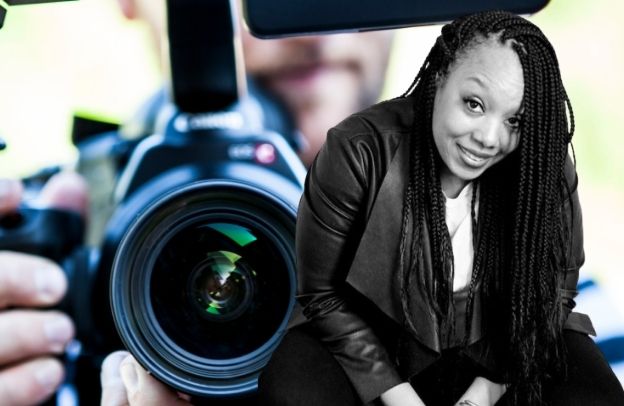Fix Yourself First: Become better in your Relationship and your family – Mc’Dole Chigborogu

We’ have all felt it. The unspoken tension in a household where love has become a memory. The silence from a father too stressed to connect, the pride that keeps apologies locked away. For many in the African diaspora, this story is painfully familiar, a cycle of brokenness passed down through generations.
Learn How to Leverage Your Story through our Story To Asset Framework.
We strive to build successful businesses and leave a powerful legacy, yet the foundations of our personal lives often feel fragile. But what if the secret to building stronger family bonds and a more meaningful life doesn’t start with fixing others, but with fixing ourselves?
See the full episode with Mc’Dole Chigborogu
In a profound conversation on The Obehi Podcast, host Obehi Ewanfoh sat down with Mc’Dole Chigborogu, a Keynote Speaker and Men’s Dating Expert, to uncover the root of relational dysfunction.
Mc’Dole’s journey, shaped by his Nigerian heritage and upbringing in Italy, offers a powerful roadmap for anyone looking to transform their relationships.
The core insight is both simple and revolutionary: to truly connect with others, you must first master the relationship with yourself. This is the first step to owning your story and building a life of purpose.
The Foundation: Why You Must Heal Yourself First
“A lot of people get into relationships broken,” Mc’Dole states plainly. This single idea cuts through the noise of conventional relationship advice. We often search for a partner to complete us, to heal our wounds, or to build a life for us.
But as Mc’Dole explains, this approach is flawed. “What I teach people is actually how to fix you first so that your partner doesn’t have to deal with your crap.”
This principle of self-mastery is the bedrock of any healthy connection. It requires a level of honesty that many of us are taught to avoid. Mc’Dole learned this not from a textbook, but from observing his parents.
See also See also Building Cultural Understanding: How African Diasporans Can Participate in Africa’s Rich Traditions
After a difficult divorce, his father remarried, and Mc’Dole witnessed a new relationship built on a rare and powerful ingredient: accountability.
“What made it unusual is accountability,” he shares. “They’re not scared to say, ‘I’m in the wrong.’ They’re not scared to say, ‘You know what, I could have done this better.'”
This willingness to admit fault is a superpower. It dismantles pride and creates a safe space for genuine connection to flourish. Before you can be accountable to a partner, you must be accountable to yourself.
This is the essence of what Obehi Ewanfoh calls “owning your story.” It means looking at your past, your wounds, and your patterns not as a source of shame, but as the raw material for your growth. Mc’Dole’s work is a testament to this, as he helps others understand their journey by first understanding his own.
The Crisis of Silence: Redefining Strength for Men
The conversation took a crucial turn toward the unique challenges facing men today. Mc’Dole points to a sobering reality: “Great men create good times, good times create weak men, and weak men create bad times.”
He argues that we are currently in “bad times” fueled by an “epidemic of weak men,” defining this weakness not as a lack of physical strength, but as an inability to be vulnerable and honest.
Men are often trapped by the expectation that they should have all the answers. This pressure leads to a dangerous silence, a refusal to admit when they are struggling. The consequences are devastating, reflected in the alarmingly high suicide rates among men. “We are dealing with a society that just doesn’t know what to do with it,” Mc’Dole observes.
The antidote to this silent suffering is humility. Mc’Dole shares a powerful example from his own life, recalling his father’s vulnerability. “He was like, ‘I don’t know what I’m doing sometimes,'” Mc’Dole remembers. “His humility was like, wow. So, he’s also trying to figure it out.”
See also See also Nnedi Okorafor: The African Diaspora Influencer Who is Reshaping the Future of Creativity and Culture
This admission didn’t make his father weak; it made him human and relatable. It transformed their relationship from one of rigid authority to one of collaboration and mutual respect.
True strength isn’t about having all the answers. It’s about having the courage to say, “I don’t know, but I’m willing to find out.” It’s about breaking the cycle of pretending and embracing the journey of discovery, both for yourself and with your loved ones. This journey from posturing to presence is essential for building a legacy that matters.
Ubuntu in the Diaspora: The Power of Community
While the journey begins with self, it cannot be completed in isolation. Obehi masterfully connects this idea to the African philosophy of Ubuntu: “I am because we are.”
As individuals, we have limits. Our strength will eventually fail us. But as a community, our potential is boundless. This spirit of community is a cultural inheritance for people of African descent, yet it often becomes fragmented in the diaspora.
Mc’Dole, having experienced Italian, UK, and Nigerian cultures, notes the profound strength of the Italian family dynamic, where family is deeply integrated into daily life. He observes that while the African diaspora has a culture of support, it can also be divided. “We’re fighting amongst each other instead of finding strengths in order to elevate ourselves,” he laments.
The lesson is clear: we must be intentional about building our communities. This isn’t just about networking; it’s about finding people who understand your unwritten language.
As Obehi beautifully describes, sometimes all you need is a look from someone who gets you, who knows your story without you having to say a word. This is the kind of connection that saves lives and builds legacies. It’s in these trusted circles that we find the courage to be vulnerable and the wisdom to overcome our challenges.
Your Path from Roots to Relevance: Taking Action Today
Understanding these principles is the first step. Applying them is how you transform your life and business. Obehi’s Story to Asset Framework is built on this very idea, helping entrepreneurs turn their personal journeys into their most powerful marketing tools.
Here are four actionable steps inspired by the conversation to begin your own journey of self-mastery and connection.
- Practice Radical Honesty. Start by admitting what you don’t know. Mc’Dole emphasizes, “Take responsibility for the fact that you don’t know what to do.” This isn’t failure; it’s the beginning of wisdom. Acknowledge your pride and recognize it as the barrier that’s holding you back.
- Heal Your Inner Child. Mc’Dole’s turning point came when he looked inward and spoke to the child who was crying out for help. He promised to protect that child. Who in you, needs protection? What old wounds are still driving your decisions? Tending to your inner self is a profound act of leadership.
- Seek True Guidance. Stop asking for advice from people who haven’t solved the problem you’re facing. As Mc’Dole puts it, “If you need a pen, go to the person that has a pen.” Invest in mentors, coaches, and communities that have a proven track record. This is how you accelerate your growth and avoid repeating mistakes.
- Build Your Village. Actively seek out your community. Find the people who understand your culture, your struggles, and your ambitions. This is your support system, your source of strength when your own runs low. This is the spirit of Ubuntu in action, creating a network of collaboration that ensures no one has to build their legacy alone.
The journey to building a lasting legacy and thriving relationships is an inside job. It starts when you decide to own your story, dismantle your pride, and embrace the power of vulnerability.
To dive deeper into this transformative conversation, listen to the full episode with Mc’Dole Chigborogu on The Obehi Podcast. For more insights on turning your personal story into professional success, explore over 2,000 articles at AClasses Academy and discover how Obehi Ewanfoh’s work is helping entrepreneurs move from roots to relevance.





